SEARCH BY TITLE
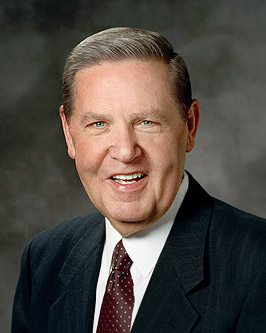 Are We Not All Beggars?
Are We Not All Beggars?
So how might we “do what we can”? For one thing, we can, as King Benjamin taught, cease withholding our means because we see the poor as having brought their misery upon themselves. Perhaps some have created their own difficulties, but don’t the rest of us do exactly the same thing? Isn’t that why this compassionate ruler asks, “Are we not all beggars?” Don’t we all cry out for help and hope and answers to prayers? Don’t we all beg for forgiveness for mistakes we have made and troubles we have caused? Don’t we all implore that grace will compensate for our weaknesses, that mercy will triumph over justice at least in our case? Little wonder that King Benjamin says we obtain a remission of our sins by pleading to God, who compassionately responds, but we retain a remission of our sins by compassionately responding to the poor who plead to us. In addition to taking merciful action in their behalf, we should also pray for those in need. A group of Zoramites, considered by their fellow congregants to be “filthiness” and “dross”—those are scriptural words—were turned out of their houses of prayer “because of the coarseness of their [wearing] apparel.” They were, Mormon says, “poor as to things of the world; and also … poor in heart” — two conditions that almost always go together. Missionary companions Alma and Amulek counter that reprehensible rejection of the shabbily dressed by telling them that whatever privileges others may deny them, they can always pray—in their fields and in their houses, in their families and in their hearts. But then, to this very group who had themselves been turned away, Amulek says, “After [you] have [prayed], if [you] turn away the needy, and the naked, and visit not the sick and afflicted, and impart of your substance, if [you] have [it], to those who stand in need—I say unto you, … your prayer is vain, and availeth you nothing, and [you] are as hypocrites who do deny the faith.” What a stunning reminder that rich or poor, we are to “do what we can” when others are in need.
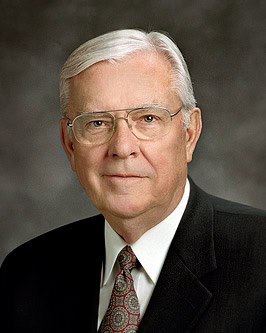 Be Anxiously Engaged
Be Anxiously Engaged
The beehive has always been an important symbol in our Church history. We learn in the Book of Mormon that the Jaredites carried honeybees with them when they journeyed to the Americas thousands of years ago. Brigham Young chose the beehive as a symbol to encourage and inspire the cooperative energy necessary among the pioneers to transform the barren desert wasteland surrounding the Great Salt Lake into the fertile valleys we have today. We are the beneficiaries of their collective vision and industry. The beehive symbol is found in both the interiors and exteriors of many of our temples. This podium where I stand is made from the wood of a walnut tree grown in President Gordon B. Hinckley’s backyard and is adorned with carved beehive images. All of this symbolism attests to one fact: great things are brought about and burdens are lightened through the efforts of many hands “anxiously engaged in a good cause”. Imagine what the millions of Latter-day Saints could accomplish in the world if we functioned like a beehive in our focused, concentrated commitment to the teachings of the Lord Jesus Christ. . . We read of the service Church members provide around the world and especially the humanitarian service given in times of crisis—fires and floods and hurricanes and tornadoes. These much-needed and much-appreciated emergency responses should certainly continue as a way of bearing one another’s burdens. But what about our everyday lives? What would be the cumulative effect of millions of small, compassionate acts performed daily by us because of our heartfelt Christian love for others? Over time this would have a transformative effect upon all of our Heavenly Father’s children through the extension of His love to them through us. Our troubled world needs this love of Christ today more than ever, and it will need it even more in the years ahead. These simple, daily acts of service may not seem like much in and of themselves, but when considered collectively they become just like the one-twelfth teaspoon of honey contributed by a single bee to the hive. There is power in our love for God and for His children, and when that love is tangibly manifest in millions of acts of Christian kindness, it will sweeten and nourish the world with the life-sustaining nectar of faith, hope, and charity.
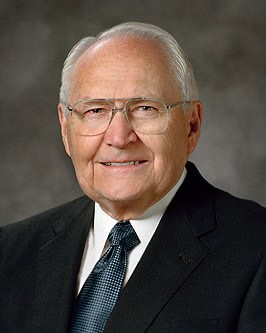 Be the Best of Whatever You Are
Be the Best of Whatever You Are
The second challenge I wish to extend to each of you pertains to service in God’s kingdom here upon the earth. One of the most exciting blessings which can come to us as members of our Savior’s church is to live in this modern day when the Church is experiencing its greatest period of growth. Each day since the restoration of the gospel there has been greater opportunities for service in the Church than there was the day before. Tomorrow, there will be an even greater opportunity than there is today. Certainly, this is the day spoken of by the ancient prophet when he said: And it shall come to pass in the last days, that the mountain of the Lord’s house shall be established in the top of the mountains, and shall be exalted above the hills; and all nations shall flow unto it. And many people shall go and say, Come ye, and let us go up to the mountain of the Lord, to the house of the God of Jacob; and he will teach us of his ways, and we will walk in his paths. As I travel throughout the stakes of the Church there is always one common cry: “If I only had another bishop like Brother Jones or another Relief Society president like Sister Smith or another Young Adult representative like Sister Brown or another home teacher like Brother Doe, what a difference I could make in my stake.” When asked by a group of full-time missionaries recently as to what was the greatest challenge the Church is facing today, I was quick to respond that it is the challenge of growth. I wonder if the only reason that hundreds of thousands more are not embracing the gospel is that we have not yet developed a strong enough leadership base. Then, we too must examine our effectiveness as leaders when only 50 or 60 percent of our families are presided over by fathers active in the Church. Do you see what a great demand there is for qualified leaders in our Father in heaven’s kingdom? Now consider the great privilege you are presently receiving to prepare you to be more able kingdom builders as your preparation relates to the instructions of the Lord to us: Zion must increase in beauty, and in holiness; her borders must be enlarged; her stakes must be strengthened; yea, verily I say unto you, Zion must arise and put on her beautiful garments. Some labor with the misconception that the professions for which they are preparing themselves will be too demanding to consider a life of major service in the kingdom of God. My experience has been that the greatest teacher is service in his kingdom.
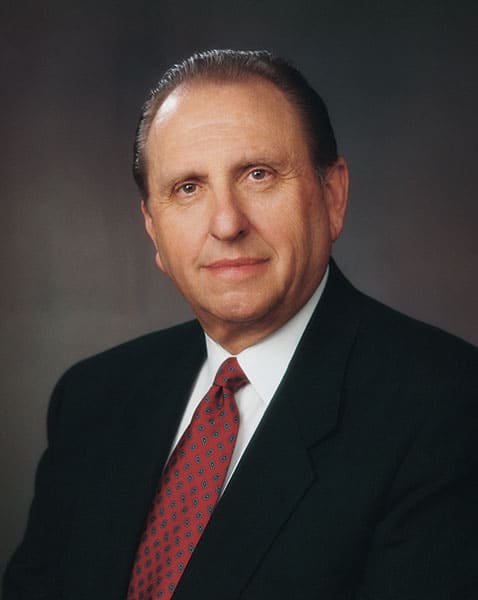 Come, All Ye Sons of God
Come, All Ye Sons of God
The challenge is to be more profitable servants in the Lord’s vineyard. This applies to all of us, whatever our age, and not alone to those who are preparing to serve as full-time missionaries, for to each of us comes the mandate to share the gospel of Christ. May I suggest a formula that will ensure our success: first, search the scriptures with diligence; second, plan your life with purpose (and, I might add, plan your life regardless of your age); third, teach the truth with testimony; and fourth, serve the Lord with love. Let us consider each of the four parts of the formula. . . Brethren, may each one of us search the scriptures with diligence, plan his life with purpose, teach the truth with testimony, and serve the Lord with love. The perfect Shepherd of our souls, the missionary who redeemed mankind, gave us His divine assurance: “If it so be that you should labor all your days in crying repentance unto this people, and bring, save it be one soul unto me, how great shall be your joy with him in the kingdom of my Father! “And now, if your joy will be great with one soul that you have brought unto me into the kingdom of my Father, how great will be your joy if you should bring many souls unto me!”
 Doctrine of Inclusion
Doctrine of Inclusion
Perceptions and assumptions can be very dangerous and unfair. There are some of our members who may fail to reach out with friendly smiles, warm handshakes, and loving service to all of their neighbors. At the same time, there may be those who move into our neighborhoods who are not of our faith who come with negative preconceptions about the Church and its members. Surely good neighbors should put forth every effort to understand each other and to be kind to one another regardless of religion, nationality, race, or culture. Occasionally I hear of members offending those of other faiths by overlooking them and leaving them out. This can occur especially in communities where our members are the majority. I have heard about narrow-minded parents who tell children that they cannot play with a particular child in the neighborhood simply because his or her family does not belong to our Church. This kind of behavior is not in keeping with the teachings of the Lord Jesus Christ. I cannot comprehend why any member of our Church would allow these kinds of things to happen. I have been a member of this Church my entire life. I have been a full-time missionary, twice a bishop, a mission president, a Seventy, and now an Apostle. I have never taught—nor have I ever heard taught—a doctrine of exclusion. I have never heard the members of this Church urged to be anything but loving, kind, tolerant, and benevolent to our friends and neighbors of other faiths. The Lord expects a great deal from us. Parents, please teach your children and practice yourselves the principle of inclusion of others and not exclusion because of religious, political, or cultural differences.
 Goal beyond Victory
Goal beyond Victory
Are we generous in the payment of our fast offerings? That we should be so was taught by President Joseph F. Smith. He declared that it is incumbent upon every Latter-day Saint to give to his bishop on fast day an amount equivalent to the food that he and his family would consume for the day and, if possible, a liberal donation to be so reserved and donated to the poor. President Spencer W. Kimball suggested that, in our generosity, we go beyond a minimum amount. He urged that we “give, instead of the amount we saved by our two meals of fasting, perhaps much, much more—ten times more where we are in a position to do it.” The generous response of the Latter-day Saints in times of crisis is legendary. Many will remember the emergency aid provided our needy Saints in Europe following World War II. President Ezra Taft Benson directed this effort. More recently, this generosity helped to avert starvation in Africa. Irrigation projects, producing wells, and improved agricultural methods are all part of a dream come true. Similarly, at the time of the Teton Dam disaster in Idaho, the response of the members to the call of need was overwhelming. Today, in lands far away and right here in Salt Lake City, there are those who suffer hunger, who know want and are acquainted with poverty. Ours is the opportunity and the sacred privilege to relieve this hunger, to meet this want, to eliminate this poverty. The Lord provided the way when He declared, “And the storehouse shall be kept by the consecrations of the church; and widows and orphans shall be provided for, as also the poor.” Then the reminder, “But it must needs be done in mine own way.” In the vicinity where I once lived and served, we operated a poultry project. Most of the time it was an efficiently operated project, supplying to the storehouse thousands of dozens of fresh eggs and hundreds of pounds of dressed poultry. . . No member of the Church who has canned peas, topped beets, hauled hay, or watered corn in such a cause ever forgets or regrets the experience of helping provide for those in need. Sharing with others that which we have is not new to our generation.
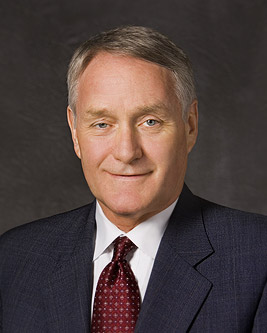 The Lord’s Way
The Lord’s Way
Brothers and sisters, our living apostles and prophets are still teaching correct principles. The question is “Are we using these principles to govern ourselves?” One thing we have often been taught is to bloom where we are planted. Yet sometimes we are tempted to migrate to some new area, thinking our children will have more friends and therefore better youth programs. Brothers and sisters, do we really think the critical factor in the salvation of our children is the neighborhood where we live? The apostles and prophets have often taught that what happens inside the home is far more important than what our children encounter outside. How we raise our children is more important than where we raise them. Certainly there are other factors involved in deciding where to live, and thankfully, the Lord will guide us if we seek His confirmation. Another question is “Where are we needed?” For 16 years I served in the presidency of the Houston Texas North Stake. Many moved to our area during those years. We would often receive a phone call announcing someone moving in and asking which was the best ward. Only once in 16 years did I receive a call asking, “Which ward needs a good family? Where can we help?” In the early years of the Church, President Brigham Young and others would call members to go to a certain place to build up the Church there. The irony is that even now we have faithful Church members everywhere who would go anywhere the prophet asked them to go. Do we really expect President Monson to individually tell more than 14 million of us where our family is needed? The Lord’s way is that we hearken to our leaders’ teachings, understand correct principles, and govern ourselves.
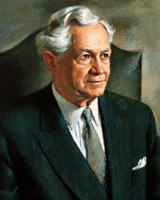 Partakers of the Divine Spirit
Partakers of the Divine Spirit
When the Savior was about to leave his Apostles, he gave them a great example of service. You remember he girded himself with a towel and washed his disciples’ feet. Peter, feeling it was a menial work for a servant, said, “. . . dost thou wash my feet? . . . Thou shalt never wash my feet.” The Savior answered “If I wash thee not, thou hast no part with me.” “Nay then,” said the chief Apostle, “Not my feet only, but also my hands and my head.” “He that is washed needeth not save to wash his feet, but is clean every whit. “What I do thou knowest not now; but thou shalt know hereafter.” And then he washed his feet, and those of the others also. Returning the basin to the side of the door, ungirding himself, and putting on his robe, he returned to his position with the Twelve, and said: “Ye call me Master and Lord: and ye say well; for so I am. “If I then, your Lord and Master, have washed your feet; ye also ought to wash one another’s feet.” What an example of service to those great servants, followers of the Christ! He that is greatest among you, let him be least. So we sense the obligation to be of greater service to the membership of the Church, to devote our lives to the advancement of the kingdom of God on earth.
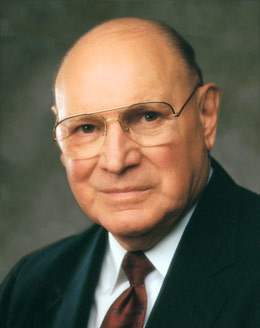 Personal Integrity
Personal Integrity
We show our integrity by caring for and serving others. Let me cite an instance where family members, a Christlike bishop, home teachers, visiting teachers, and ward members so lived. A young mother of eight children was left without a husband. The oldest child was twelve, the youngest barely one, and one daughter was confined to a wheelchair. This mother moved to a ward that was close to her family and friends. Being single and divorced, she feared that she might be ignored or shunned. However, as she was moving in, ward members streamed in to welcome her, bring food, and offer assistance. She hardly had time to direct those who were unloading the moving van. After getting settled, she and her family received innumerable expressions of service and love. Her home teachers repaired her appliances and other household items. Her visiting teachers kept very close and made sure she never had to go alone to a Church activity. At Christmastime, she found money left anonymously on her porch or had it given to her in a handshake. She received hundreds of dollars toward the purchase of a wheelchair-lift for her van. After being out of town briefly, she returned home and found that ward members had renovated her kitchen. Her parents, brother, and sisters provided financial and emotional support. They helped take care of her children, accompanied her to the emergency room with a daughter who was very ill, built a ramp to the front door for the wheelchair, built shelves for food storage, and helped with yard work. All of this kindness lifted her spirits and gave her courage to meet the trials and hardships of each day. Those who looked after this young mother practiced “pure religion” because of their integrity. Let us “go, and do … likewise”, as the Savior taught in the parable of the good Samaritan.
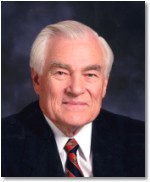 Ten Ideas to Increase Your Spirituality
Ten Ideas to Increase Your Spirituality
Some people get caught up with concern about position or status—something like the person who prayed, “Father, I want to serve; use me … in an executive position.” Don’t be like the young, handsome, enthusiastic elder who asked me on the first day he arrived at the MTC in Provo, “President, do you know what my major goal is in my mission?” Of course I didn’t know. He said, “My main goal is to become assistant to the president of my mission!” How much better it would have been for him to have said something like this: “President, the main goal I have on my mission is to be a worthy representative of the Lord Jesus Christ. I want to serve Him with all my heart, might, mind, and strength. I would be happy to serve in whatever part of the mission and in whatever assignment I am given. I just want to serve.” Remember that even the Savior performed the humblest acts of service. If there ever comes a time when we get concerned about where we are serving or why someone else is called to do this or that, rather than us, think of the Savior in that Upper Room when He, as the greatest of all, the Creator of worlds without number, our Savior and Redeemer, took the basin, water, and towel and knelt before His disciples, performing that humble act of service by washing His disciples’ feet. After overcoming Peter’s reluctance and finishing the process, He asked them: “Know ye what I have done to you? “Ye call me Master and Lord: and ye say well; for so I am. “If I then, your Lord and Master, have washed your feet; ye also ought to wash one another’s feet. “For I have given you an example, that ye should do as I have done to you. “Verily, verily, I say unto you, The servant is not greater than his lord; neither he that is sent greater than he that sent him. “If ye know these things, happy are ye if ye do them”.
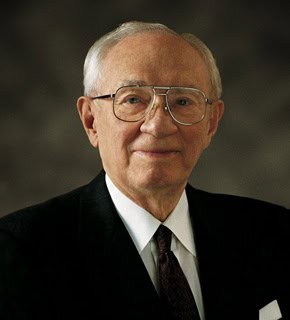 The True Strength of the Church
The True Strength of the Church
But there is another side of the coin, without which this self-discipline is little more than an exercise. Discipline imposed for the sake of discipline is repressive. It is not in the spirit of the gospel of Jesus Christ. It is usually enforced by fear, and its results are negative. But that which is positive, which comes of personal conviction, builds and lifts and strengthens in a marvelous manner. In matters of religion, when a man is motivated by great and powerful convictions of truth, then he disciplines himself, not because of demands made upon him by the Church but because of the knowledge within his heart that God lives; that he is a child of God with an eternal and limitless potential; that there is joy in service and satisfaction in laboring in a great cause. The remarkable progress of this church, to which the Reverend Kelley referred, is not so much the result of the requirements of the Church upon its members as it is the result of the conviction in the hearts of those members that this is in very deed the work of God, and that happiness and peace and satisfaction are found in righteous service. We are gathered today on Temple Square in this historic Tabernacle, surrounded by other remarkable buildings, but the strength of the Church is not in these buildings, nor in its thousands of houses of worship across the world, nor in its universities and hospitals. These are all facilities, desirable, means to an end, but only auxiliary to that which is the true strength. As President Lee indicated yesterday, the strength of this church lies in the hearts of its people, in the individual testimony and conviction of the truth of this work. When an individual has that witness and testimony, the requirements of the Church become challenges rather than burdens. Declared the Savior: “… my yoke is easy, and my burden is light.” The yoke of Church responsibility, the burden of Church leadership become opportunities rather than problems to him who wears the mantle of dedicated membership in the church of Jesus Christ.
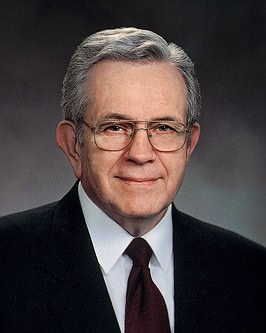 The Unwritten Order of Things
The Unwritten Order of Things
When President J. Reuben Clark was called as second counselor in the First Presidency after having served for many years as first counselor, he responded at the Solemn Assembly where the sustaining of the new First Presidency took place: “In the service of the Lord, it is not where you serve but how. In The Church of Jesus Christ of Latter-day Saints, one takes the place to which one is duly called, which place one neither seeks nor decks nor declines”. The Church had been taught a very valuable lesson in the unwritten order of things. I learned years ago that we do not choose where we serve–we just answer the call. Soon after our marriage, I was called as an assistant stake clerk. My bishop did not want to release me as Gospel Doctrine teacher. He told me that I had much more to offer as a teacher than in the very obscure assignment as assistant stake clerk. But he knew that, under the unwritten order of things, the stake president presided and that his call took precedence. I cannot tell you all that I learned in that calling. I was able to see how a presidency works. I was the witness to revelation in the calling and the releasing of stake and ward officers. By watching our stake president, I learned by observation and experience many things that are not in the handbook. It was in that calling that I first met members of the Twelve and others of the Brethren as they came to conference. It was a time of training in the unwritten order of things. I was on a plane once with President Kimball who, I think, served for 19 years as a stake clerk. A member that lived in the stake at that time was on the plane. He said to me, “If I’d known that our stake clerk was going to be President of the Church, I’d have treated him a lot better.”
 What Have I Done for Someone Today?
What Have I Done for Someone Today?
Just over a year ago, I was interviewed by the Church News prior to my birthday. At the conclusion of the interview, the reporter asked what I would consider the ideal gift that members worldwide could give to me. I replied, “Find someone who is having a hard time or is ill or lonely, and do something for him or her.” I was overwhelmed when this year for my birthday I received hundreds of cards and letters from members of the Church around the world telling me how they had fulfilled that birthday wish. The acts of service ranged from assembling humanitarian kits to doing yard work. Dozens and dozens of Primaries challenged the children to provide service, and then those acts of service were recorded and sent to me. I must say that the methods for recording them were creative. Many came in the form of pages put together into various shapes and sizes of books. Some contained cards or pictures drawn or colored by the children. One very creative Primary sent a large jar containing hundreds of what they called “warm fuzzies,” each one representing an act of service performed during the year by one of the children in the Primary. I can only imagine the happiness these children experienced as they told of their service and then placed a “warm fuzzy” in the jar. I share with you just a few of the countless notes contained in the many gifts I received.
 Willing and Worthy to Serve
Willing and Worthy to Serve
As we perform our duties and exercise our priesthood, we will find true joy. We will experience the satisfaction of having completed our tasks. We have been taught the specific duties of the priesthood which we hold, whether it be the Aaronic or the Melchizedek Priesthood. I urge you to contemplate those duties and then do all within your power to fulfill them. In order to do so, each must be worthy. Let us have ready hands, clean hands, and willing hands, that we may participate in providing what our Heavenly Father would have others receive from Him. If we are not worthy, it is possible to lose the power of the priesthood; and if we lose it, we have lost the essence of exaltation. Let us be worthy to serve. . . The call of duty can come quietly as we who hold the priesthood respond to the assignments we receive. President George Albert Smith, that modest but effective leader, declared, “It is your duty first of all to learn what the Lord wants and then by the power and strength of His holy Priesthood to [so] magnify your calling in the presence of your fellows … that the people will be glad to follow you.” . . Brethren, the world is in need of our help. Are we doing all we should? Do we remember the words of President John Taylor: “If you do not magnify your callings, God will hold you responsible for those whom you might have saved had you done your duty”? There are feet to steady, hands to grasp, minds to encourage, hearts to inspire, and souls to save. The blessings of eternity await you. Yours is the privilege to be not spectators but participants on the stage of priesthood service. Let us hearken to the stirring reminder found in the Epistle of James: “Be ye doers of the word, and not hearers only, deceiving your own selves.” Let us learn and contemplate our duty. Let us be willing and worthy to serve. Let us in the performance of our duty follow in the footsteps of the Master. As you and I walk the pathway Jesus walked, we will discover He is more than the babe in Bethlehem, more than the carpenter’s son, more than the greatest teacher ever to live. We will come to know Him as the Son of God, our Savior and our Redeemer.
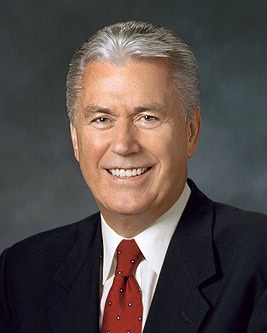 You Are My Hands
You Are My Hands
True love requires action. We can speak of love all day long—we can write notes or poems that proclaim it, sing songs that praise it, and preach sermons that encourage it—but until we manifest that love in action, our words are nothing but “sounding brass, or a tinkling cymbal.” Christ did not just speak about love; He showed it each day of His life. He did not remove Himself from the crowd. Being amidst the people, Jesus reached out to the one. He rescued the lost. He didn’t just teach a class about reaching out in love and then delegate the actual work to others. He not only taught but also showed us how to “succor the weak, lift up the hands which hang down, and strengthen the feeble knees.” Christ knows how to minister to others perfectly. When the Savior stretches out His hands, those He touches are uplifted and become greater, stronger, and better people as a result. If we are His hands, should we not do the same? . . . As we extend our hands and hearts toward others in Christlike love, something wonderful happens to us. Our own spirits become healed, more refined, and stronger. We become happier, more peaceful, and more receptive to the whisperings of the Holy Spirit. With all my heart and soul I give thanks to our Heavenly Father for His love for us, for the gift of His Son, for the life and example of Jesus the Christ, and for His sinless and selfless sacrifice. I rejoice in the fact that Christ is not dead but risen from the grave! He lives and has returned to the earth to restore His authority and gospel to man. He has given us the perfect example of the kind of men and women we should be.
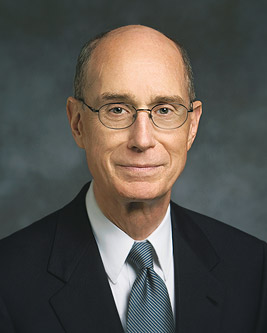 Where Is the Pavilion?
Where Is the Pavilion?
The pavilion that seems to be hiding you from God may be fear of man rather than this desire to serve others. The Savior’s only motivation was to help people. Many of you, as I have, have felt fear in approaching someone you have offended or who has hurt you. And yet I have seen the Lord melt hearts time after time, including my own. And so I challenge you to go for the Lord to someone, despite any fear you may have, to extend love and forgiveness. I promise you that as you do, you will feel the love of the Savior for that person and His love for you, and it will not seem to come from a great distance. For you, that challenge may be in a family, it may be in a community, or it may be across a nation. But if you go for the Lord to bless others, He will see and reward it. If you do this often enough and long enough, you will feel a change in your very nature through the Atonement of Jesus Christ. Not only will you feel closer to Him, but you will also feel more and more that you are becoming like Him.
